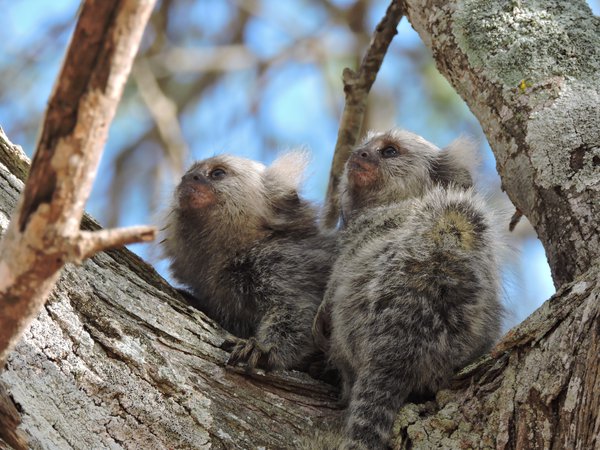
Submitted 5 February 2018 by Paul A. Garber
Field school sexual harassment policy: http://studentcode.illinois.edu/article1_part1_1-111.html

In conjunction with the Federal Rural University of Pernambuco, Brazil (Dr. Nicola Schiel), I will be teaching a primate behavior, ecology, and conservation field course this summer (July 5th to July 28th) in northeastern Brazil. Our field site is located in a Caatinga habitat and contains several habituated and marked groups of common marmosets (Callithrix jacchus).
I ask that you forward this email to interested undergraduate and graduate students who you feel would benefit intellectually and professionally from the course.
Each student in the course will conduct an individualized research project on the behavior and ecology of common marmosets, collect field data to test a set of hypotheses, analyze their data, and write a final report during the course. Research projects will focus on topics such as (1) age/sex based differences in positional behavior, (2) age/sex based differences in activity budget, diet, and foraging techniques, (3) age/sex based differences in social spacing and affiliative and agonistic behavior, (4) age/sex based differences in infant caregiving, (4) spatial memory and the distribution of visited feeding sites, and (5) intraspecific variability in common marmoset behavior and ecology
This course is directed to bright and motivated undergraduate and graduate students interested in biological anthropology, primatology, animal behavior, tropical ecology, conservation, sustainability, and field biology. Each day the professors and graduate teaching assistants work intensively with students, present lectures, and provide background information to help students develop a conceptual framework for understanding the diversity and complexity of tropical ecosystems. Lectures, training in field techniques, examples of animal-plant interactions, and observations of primate behavior are designed to help students develop their individual research projects. The course also will include GIS and Bioacoustic workshops.
In addition, students will learn about the culture, food, and history of northeastern Brazil, and have the opportunity to meet and interact with local people who live in the communities adjacent to the field site.
Additional information and application materials can be found at http://primatefieldcourse2018.webnode.com/
The course is equivalent to an advanced undergraduate/graduate level course that I have taught at the University of Illinois. In order for students to obtain academic credit, we encourage them to work out an arrangement to register for an independent study course with a professor at their home university. Each student will return from Brazil with a final course grade, as well as their grades from a 3-hr essay exam, a 15 minute powerpoint presentation of their results, and a final research paper written in the form of a journal article. Students also will return with class notes based on daily lectures.
If you or your students have any questions or would like to learn more about this exciting research and educational opportunity, please feel free to contact me at [email protected]
Best always,
Paul
Copyright © 2024 American Association of Biological Anthropologists.
Site programming and administration: Ed Hagen, Department of Anthropology, Washington State University